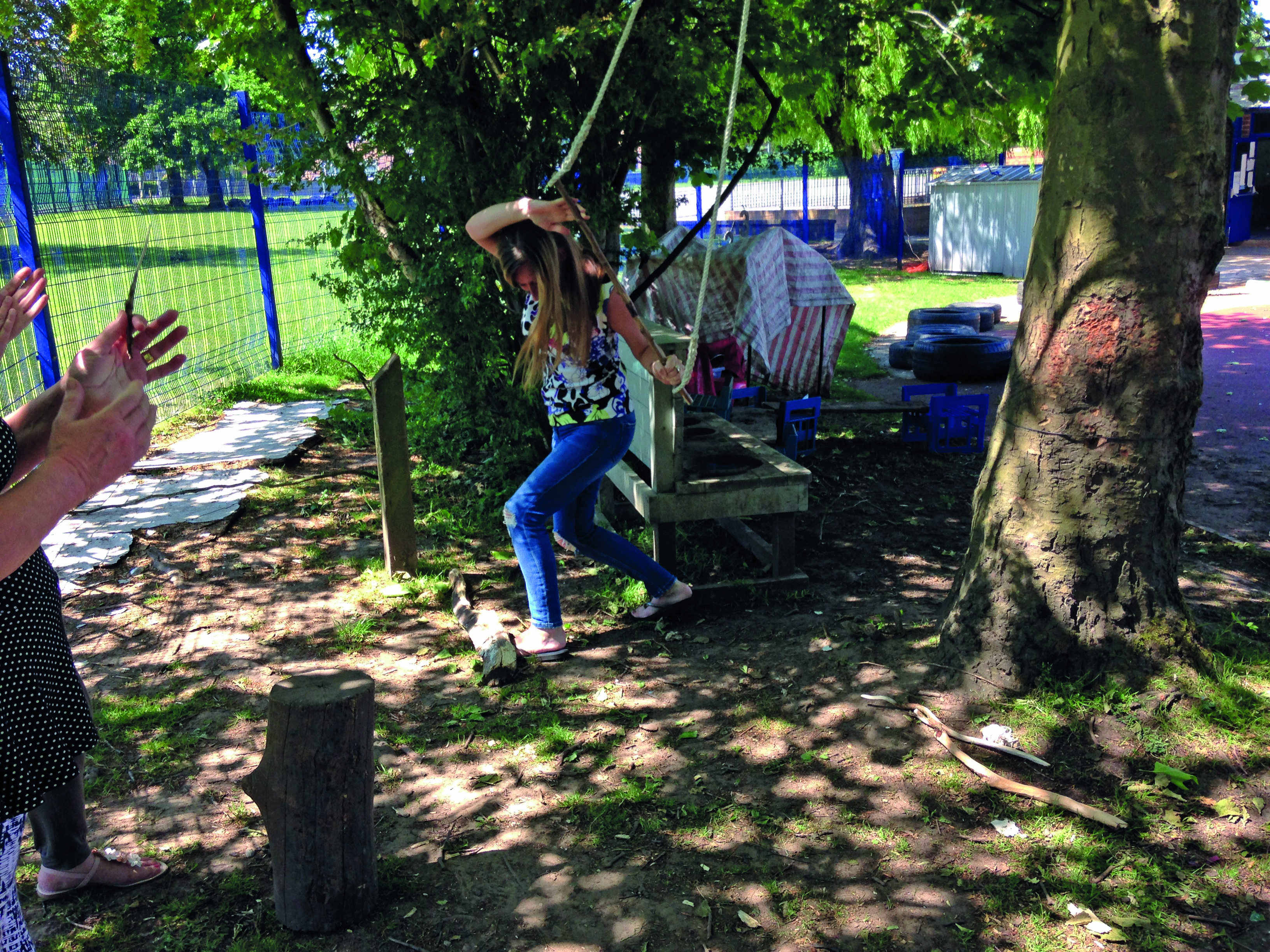
When you are outside, you get your hands dirty – you don’t forget that in a hurry,’ says Julie Mountain. ‘Outdoor learning is much more memorable for adults.’
Ms Mountain, who is director of Play Learning Life, believes all areas of teaching early years curriculum can be improved through outdoor CPD. Her recommended approach is for a full setting to undertake action-research-project-style training over several months to simultaneously address multiple teaching objectives, rather than the ‘generic’ online courses or half-day training sessions offered by local authorities.
‘Anecdotally we know shared learning and understanding of change is much better when you’re all working together than if you have got to absorb it and share that knowledge back to your colleagues,’ she says.
For example, if a setting wanted to improve communication and language, staff would begin by assessing how children use the outside space, where they congregate and how to enhance opportunities in those areas. ‘Children use more interesting vocabulary, and communicate more frequently, outdoors,’ Ms Mountain says. ‘They want to share what they’re doing. You want your practitioners to be as skilled as possible in encouraging that.’
Evaluate as you go
Practitioners should track children over a number of weeks to see what approaches work. ‘Continuing in CPD is the bit people forget,’ says Ms Mountain. ‘Particularly with outdoors you have to keep going back and make it work for you.’
Professor Jan White, a consultant of outdoor provision in the early years, agrees the reflective style of outdoor CPD can help workforces become better at assessing and evaluating their own practice. ‘What the training should do is help people look at their own provision and practice. What’s actually going on here with this mud kitchen? What could we do to make it work better?,’ she says.
Prof White says outdoor training is more memorable and impactful because of the emotional moments practitioners may experience. They may be reminded of their own childhood play, and skills lost and found, such as den-building. ‘Having reminded them, it’s about helping them realise just how much happens through this kind of play,’ she says. ‘Den play is a deeply psychological experience, as well as providing opportunities to do everything the curriculum asks for.’

New CPD approach
All this ties in with a new emphasis from both the EYFS and Ofsted on thinking more deeply about what makes high-quality CPD and relating this to a setting’s needs. From September, practitioners will be working under the revised EYFS. Under the Principles into Practice guidance, which was included in early drafts of the revised Development Matters, evidence-based, long-term CPD has been pushed up the agenda, while Ofsted’s Education Inspection Framework also has a new focus on it, by shifting towards curriculum and away from assessment.
The handbook states leaders must ensure they and practitioners receive ‘highly effective professional development’, and that ‘practitioners’ subject, pedagogical content and knowledge consistently builds and develops over time, and this consistently translates into improvements in the teaching of the curriculum’.
Prof White says having leaders on outdoor CPD courses encourages them to give support and time to practitioners to embed what they have learned. ‘If someone comes on the training, they may well become inspired and enthused, but they go back to their setting and can’t implement what they want,’ she says. ‘Often people say, “I wish my manager was here”.’
Embed in practice
Receiving training from trainers skilled in both the outdoors and early education is another way to ensure learning becomes embedded in practice, says Learning Through Landscapes Scotland director Matt Robinson. ‘They need to understand the challenges of getting 15 children dressed for the outdoors, and just as you open the door, one of them says they need the loo,’ he says. They must also ground training in evidence, including policy and academic research, he adds.
During the pandemic, when face-to-face training may be unavailable, Mr Robinson insists practical, outdoor experiences are still vital. ‘Even in the training we’ve been doing remotely, we get people to go outside and do things and come back to the Zoom meeting and tell us how it went,’ he says.
He gives the example of sending a practitioner outside to judge the size of a building as part of maths training. ‘Outdoor CPD is about getting the adult to experience what the child will experience,’ he says. ‘When we do this with a child, even a very young child will start saying “it’s bigger than me”, or “it’s two times bigger”. We do that with the staff, and once they’ve got that understanding, we can say “where else in maths could you go outside?” Immediately you’ll have staff thinking – it’s volume and measure – pouring stuff out the sandpit, buckets of water from the tap.’
Outdoor training helps adults make the same connections as children, which encourages them to identify different learning opportunities.









